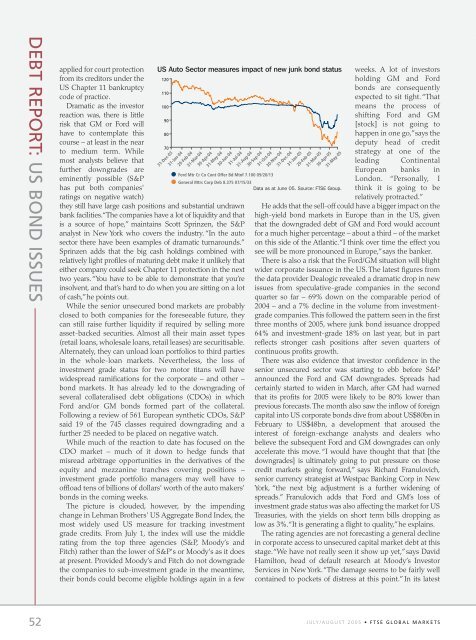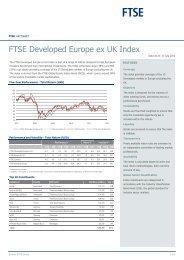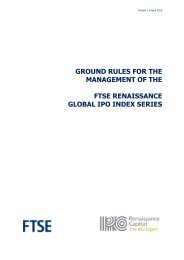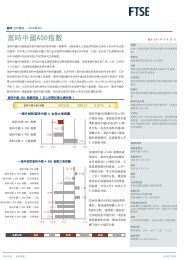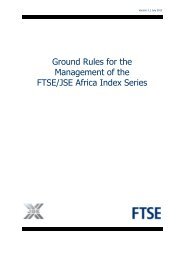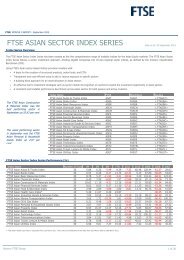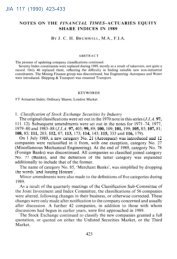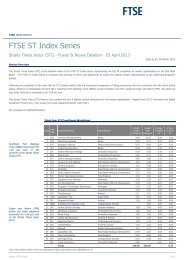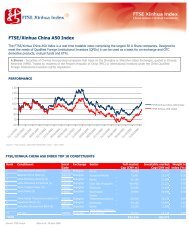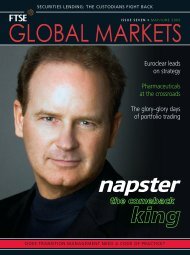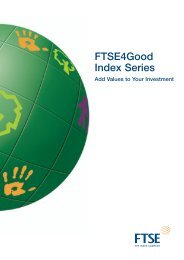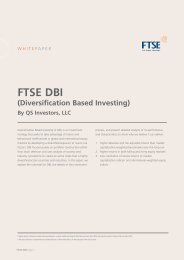Create successful ePaper yourself
Turn your PDF publications into a flip-book with our unique Google optimized e-Paper software.
DEBT REPORT: US BOND ISSUES<br />
52<br />
applied for court protection<br />
from its creditors under the<br />
US Chapter 11 bankruptcy<br />
code of practice.<br />
Dramatic as the investor<br />
reaction was, there is little<br />
risk that GM or Ford will<br />
have to contemplate this<br />
course – at least in the near<br />
to medium term. While<br />
most analysts believe that<br />
further downgrades are<br />
eminently possible (S&P<br />
has put both companies'<br />
ratings on negative watch)<br />
they still have large cash positions and substantial undrawn<br />
bank facilities.“The companies have a lot of liquidity and that<br />
is a source of hope,” maintains Scott Sprinzen, the S&P<br />
analyst in New York who covers the industry. “In the auto<br />
sector there have been examples of dramatic turnarounds.”<br />
Sprinzen adds that the big cash holdings combined with<br />
relatively light profiles of maturing debt make it unlikely that<br />
either company could seek Chapter 11 protection in the next<br />
two years.“You have to be able to demonstrate that you’re<br />
insolvent, and that’s hard to do when you are sitting on a lot<br />
of cash,”he points out.<br />
While the senior unsecured bond markets are probably<br />
closed to both companies for the foreseeable future, they<br />
can still raise further liquidity if required by selling more<br />
asset-backed securities. Almost all their main asset types<br />
(retail loans, wholesale loans, retail leases) are securitisable.<br />
Alternately, they can unload loan portfolios to third parties<br />
in the whole-loan markets. Nevertheless, the loss of<br />
investment grade status for two motor titans will have<br />
widespread ramifications for the corporate – and other –<br />
bond markets. It has already led to the downgrading of<br />
several collateralised debt obligations (CDOs) in which<br />
Ford and/or GM bonds formed part of the collateral.<br />
Following a review of 561 European synthetic CDOs, S&P<br />
said 19 of the 745 classes required downgrading and a<br />
further 25 needed to be placed on negative watch.<br />
While much of the reaction to date has focused on the<br />
CDO market – much of it down to hedge funds that<br />
misread arbitrage opportunities in the derivatives of the<br />
equity and mezzanine tranches covering positions –<br />
investment grade portfolio managers may well have to<br />
offload tens of billions of dollars' worth of the auto makers'<br />
bonds in the coming weeks.<br />
The picture is clouded, however, by the impending<br />
change in Lehman Brothers' US Aggregate Bond <strong>Index</strong>, the<br />
most widely used US measure for tracking investment<br />
grade credits. From July 1, the index will use the middle<br />
rating from the top three agencies (S&P, Moody’s and<br />
Fitch) rather than the lower of S&P's or Moody's as it does<br />
at present. Provided Moody’s and Fitch do not downgrade<br />
the companies to sub-investment grade in the meantime,<br />
their bonds could become eligible holdings again in a few<br />
US Auto Sector measures impact of new junk bond status<br />
120<br />
110<br />
100<br />
90<br />
80<br />
70<br />
31-Dec-03<br />
31-Jan-04<br />
29-Feb-04<br />
31-Mar-04<br />
30-Apr-04<br />
31-May-04<br />
30-Jun-04<br />
31-Jul-04<br />
31-Aug-04<br />
30-Sep-04<br />
31-Oct-04<br />
30-Nov-04<br />
Ford Mtr Cr Co Cont Offer Bd Mtnf 7.100 09/20/13<br />
31-Dec-04<br />
31-Jan-05<br />
29-Feb-05<br />
31-Mar-05<br />
30-Apr-05<br />
31-May-05<br />
General Mtrs Corp Deb 8.375 07/15/33<br />
Data as at June 05. Source: <strong>FTSE</strong> Group.<br />
weeks. A lot of investors<br />
holding GM and Ford<br />
bonds are consequently<br />
expected to sit tight.“That<br />
means the process of<br />
shifting Ford and GM<br />
[stock] is not going to<br />
happen in one go,”says the<br />
deputy head of credit<br />
strategy at one of the<br />
leading Continental<br />
European banks in<br />
London. “Personally, I<br />
think it is going to be<br />
relatively protracted.”<br />
He adds that the sell-off could have a bigger impact on the<br />
high-yield bond markets in Europe than in the US, given<br />
that the downgraded debt of GM and Ford would account<br />
for a much higher percentage – about a third – of the market<br />
on this side of the Atlantic.“I think over time the effect you<br />
see will be more pronounced in Europe,”says the banker.<br />
There is also a risk that the Ford/GM situation will blight<br />
wider corporate issuance in the US. The latest figures from<br />
the data provider Dealogic revealed a dramatic drop in new<br />
issues from speculative-grade companies in the second<br />
quarter so far – 69% down on the comparable period of<br />
2004 – and a 7% decline in the volume from investmentgrade<br />
companies.This followed the pattern seen in the first<br />
three months of 2005, where junk bond issuance dropped<br />
64% and investment-grade 18% on last year, but in part<br />
reflects stronger cash positions after seven quarters of<br />
continuous profits growth.<br />
There was also evidence that investor confidence in the<br />
senior unsecured sector was starting to ebb before S&P<br />
announced the Ford and GM downgrades. Spreads had<br />
certainly started to widen in March, after GM had warned<br />
that its profits for 2005 were likely to be 80% lower than<br />
previous forecasts. The month also saw the inflow of foreign<br />
capital into US corporate bonds dive from about US$80bn in<br />
February to US$48bn, a development that aroused the<br />
interest of foreign-exchange analysts and dealers who<br />
believe the subsequent Ford and GM downgrades can only<br />
accelerate this move. “I would have thought that that [the<br />
downgrades] is ultimately going to put pressure on those<br />
credit markets going forward,” says Richard Franulovich,<br />
senior currency strategist at Westpac Banking Corp in New<br />
York, “the next big adjustment is a further widening of<br />
spreads.” Franulovich adds that Ford and GM’s loss of<br />
investment grade status was also affecting the market for US<br />
Treasuries, with the yields on short term bills dropping as<br />
low as 3%.“It is generating a flight to quality,”he explains.<br />
The rating agencies are not forecasting a general decline<br />
in corporate access to unsecured capital market debt at this<br />
stage.“We have not really seen it show up yet,”says David<br />
Hamilton, head of default research at Moody’s Investor<br />
Services in New York.“The damage seems to be fairly well<br />
contained to pockets of distress at this point.” In its latest<br />
JULY/AUGUST 2005 • <strong>FTSE</strong> GLOBAL MARKETS


